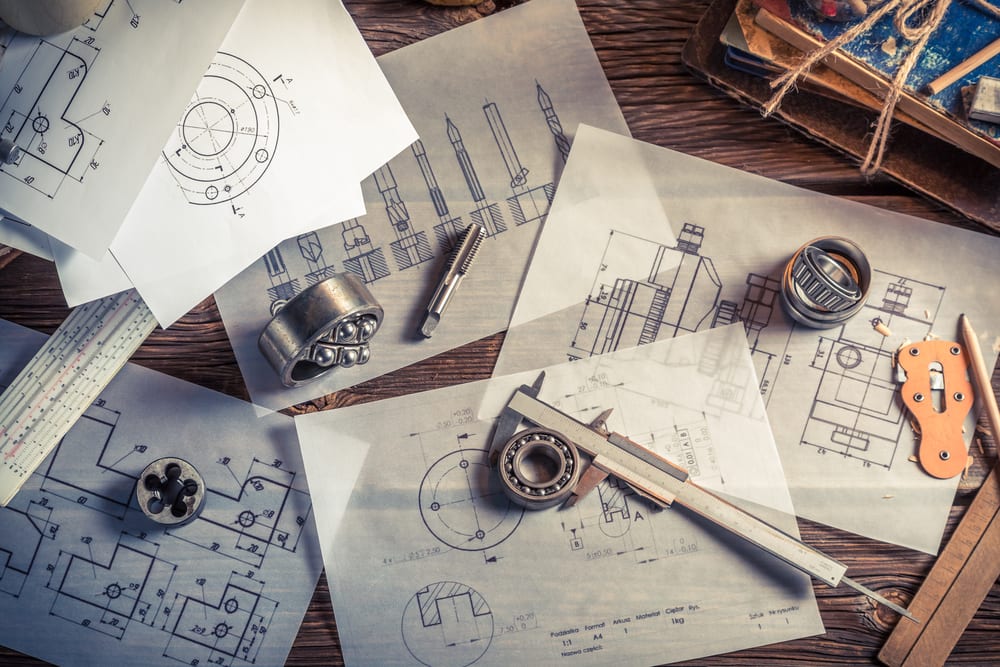

Learning about mechanics involves studying the motion of objects as well as the times when objects are not moving. Sir Isaac Newton was the first scientist who explored mechanics, and this subject became the foundation of physics. Studying mechanics is important for people who want to study other branches of science, such as astronomy, geology, and engineering. Engineering is a science that focuses on designing, making, and using inventions and structures.
What is mechanics?
Mechanics involves different kinds of movement or motion. An object might move between points, which is called translational motion. Something might also move without changing position, in which case it rotates in place. An object that repeats the same motion continually within a specific period of time oscillates. Circular motion involves something moving in a circle around another object. An object can move in just one way, or it might combine more than one type of motion. Mechanics also studies the lack of motion. Sometimes, a force affects an object that is not moving. An engineer needs to understand this static force when designing objects to make sure that they are strong enough.
What is engineering?
Engineering is a science that involves creative thinking to solve problems or design inventions. Engineers usually use their imaginations to make new objects. These objects might make people's lives easier. Sometimes engineers work on objects that already exist to make them better. Examples of objects that engineers have created include car engines, computers, bridges, and furniture. Engineers need to have strong science and math skills to design inventions. Engineering includes a lot of different things, and the people who work as engineers often feel strongly about helping people and making a difference in the world.
The science behind mechanics
Motion and how things move is a very important part of the science behind mechanics. Scientists separate mechanics into two different parts. One part is called kinematics, which describes motions. The other part is called dynamics, which looks at the reasons why objects move. A scientist describes how an object moves by explaining where the object is moving, the direction of the movement, and the speed at which the object is moving. Some terms you might hear include average speed, acceleration, rate, and velocity. Acceleration describes the rate of a change in velocity or speed. Newton's laws are the foundation of dynamics. Newton's first law is the law of inertia, which states that everything will stay at rest or moving in a straight line unless a force changes this. Newton's second law covers the effect of a force on an object, meaning that the amount of force will change the acceleration of the object. Newton's third law states that for every action, an opposite reaction happens that is equal to the action.
The science behind engineering
When a person wants to build something, one of the first things to do is to plan or design the object. To design something, the designer needs to understand how things work and why they work that way. This understanding comes from studying types of science like chemistry and physics. Once an engineer has this knowledge, they can identify a problem, think about possible ways to fix it, develop a design that might solve the problem, build it, test it, and then fine-tune it until it solves the problem.
Mechanics activities and experiments
Exploring mechanics with activities and experiments helps you learn about movement and forces. For example, an experiment about forces will show you that forces always exist in pairs and objects are affected by forces. An activity with an umbrella in the rain might help you explore the velocity of raindrops. You could even explore the common way people start a running race: starting from a crouch is actually better than starting from a standing position. Crouching lowers the center of mass, changes the angle of the body, and changes how the feet touch the ground, all of which help a runner start faster.
Engineering activities and experiments
Anyone can work like an engineer to solve problems. You can tackle a problem and brainstorm a solution to try to fix it. For example, if one of your chores is feeding the dog and you want to find an easier way to get the food into the dog's dish, you might try to make something to do this job for you. You might draw some pictures as you plan out your invention. When you find an invention that you think might work, you could build it and then test it. If it doesn't work exactly as you want, you can make adjustments until it works better.



